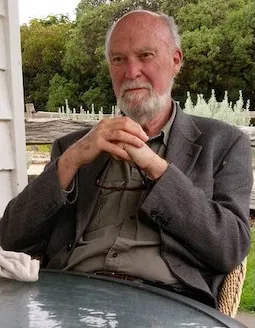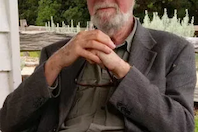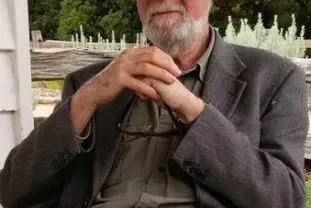Ian Linden: Lost or mislaid in translation?

Dr Ian Linden
English-speaking Catholics might have expected some benefits from a Native English-speaking Pope: a return to the good English of the old pre-2011 Missal, nothing lost in translation, promises of visits. But Leo has seemed reluctant to communicate in English. And the British are notoriously bad at foreign languages.
We need to try harder. Perhaps going to Mass on holiday abroad might help. The words are in English in your head as you hear or read them in another language. Someone else has done the work translating. The universality of the Church shines out in the marvellous equivalence of meaning in the liturgy.
Translation in its struggle to preserve and transmit meaning between different cultures and epochs is notoriously difficult. I remember a new, young, Belgian White Father in Kigali in near despair preparing a sermon in Kinyarwanda on Trinity Sunday. The problem is compounded when dealing with religious texts in which individual words themselves, rather than meanings, are treated as sacrosanct. Hence the deadening word-for-word translation, a malady of Vatican authoritarian centralism, once known as ultramontanism, that prevailed for many years.
Contemporary translations of Mass and Missal in English grew out of the liturgical reforms of the Second Vatican Council. 'Lost in Translation' Commonweal. Vol. 132, no. 21, New York 2005 by John Wilkins tells the story. The Council lead to the creation in 1964 of an International Commission on English in the Liturgy (ICEL) made up of ten anglophone Bishops' Conferences. Philippines joined later as did 15 associate members such as Nigeria with its popular pidgin English. British bishops played an important role. But the most outstanding figure was Archbishop Denis Hurley of Durban, South Africa, a hero of the anti-apartheid struggle. He was appointed by Pope Paul VI to serve on the council to implement liturgy reform and was ICEL's chairman from 1975-1991, and subsequently associated with its work for several years.
Taken forward by Hurley, the revision of the 1973 Roman Missal began in 1983 and succeeded in finding a balance between preservation of the religious meaning of the Latin text and adaptations to capture English idiom and expression. American bishops did, though, balk at the inclusive language ICEL had used in translation of the Psalter. Then in 1995, at the instigation of a minority of some 30 conservative bishops, the United States Catholic Bishops Conference complained the work wasn't literal enough. With full translation of texts under scrutiny, to use succinct Nigerian pidgin, 'troubles dey come'. And they came.
At an ICEL board meeting in Washington DC in June 1998, the new US representative on the board, Archbishop of Chicago , Francis George, arrived from Rome bearing bad news. Archbishop George had just been made cardinal by Paul VI in the same January cohort as Bishop Medina Estévez of Valparaiso, Chile, Prefect of the Vatican Congregation for Divine Worship and Discipline of the Sacraments (CDWDS) since 1996. Estévez was a stickler for keeping to Latin grammatical structure and word-for-individual word translation, what is known by professional translators as 'formal equivalence' versus ICEL's 'dynamic equivalence', that is in words that convey meaning in modern language. He had supported the Pinochet coup and, as dean of the Pontifical Catholic University in Santiago, been accused of informing on left-wing students. Cardinal George's message to ICEL boiled down to four words: their work was unacceptable.
The then ICEL chairman, the gentle Bishop Maurice Taylor of Galloway in Scotland, did his best to find a compromise. Archbishop Hurley tried to explain ICEL's methodology and wondered what had happened to the collegiality and dialogue advocated in the Second Vatican Council. An angry outburst was Cardinal George's response. There was to be no dialogue. Instead the Vatican CDWDS produced a ponderous 130-page Instruction, Liturgiam authenticam, insisting de facto on comprehensive control over the principles and practice of translation. Anything produced by ICEL had to be authorized by Rome, CDWDS staff were changed in compliance with the Vatican's wishes and an oversight committee Vox Clara was set up in Rome by Pope John Paul II. In July 2002 Bishop Arthur Roche of Leeds was appointed ICEL chairman.
That, in summary, is how we arrived at the wording of the 211 Missal and Mass. "Consubstantial with the Father" not "of one being with the Father"; "chalice not cup"; "keep us safe from distress" not "protect us from all anxiety" and, in the Offertory prayer for the Feast of the Immaculate Conception, "prevenient Grace".
The Vatican might easily have come unstuck in their changes to the words of consecration: back to the literal Christ's blood shed 'for you and for many' following the Latin 'pro vobis et pro multis'. This is not the wording in Italy - of all places. Holidaymakers at Mass may notice the words are "per voi e per tutti", for you and for all/everyone.
To read on see: www.ianlinden.com/latest-blogs/lost-or-mislaid-in-translation
Professor Ian Linden is Visiting Professor at St Mary's University, Strawberry Hill, London. A past director of the Catholic Institute for International Relations, he was awarded a CMG for his work for human rights in 2000. He has also been an adviser on Europe and Justice and Peace issues to the Department of International Affairs of the Catholic Bishops Conference of England and Wales. Ian chairs a new charity for After-school schooling in Beirut for Syrian refugees and Lebanese kids in danger of dropping out partnering with CARITAS Lebanon and work on board of Las Casas Institute in Oxford with Richard Finn OP. His latest book was Global Catholicism published by Hurst in 2009.
LINK
Ian Linden: www.ianlinden.com/latest-blogs/


















